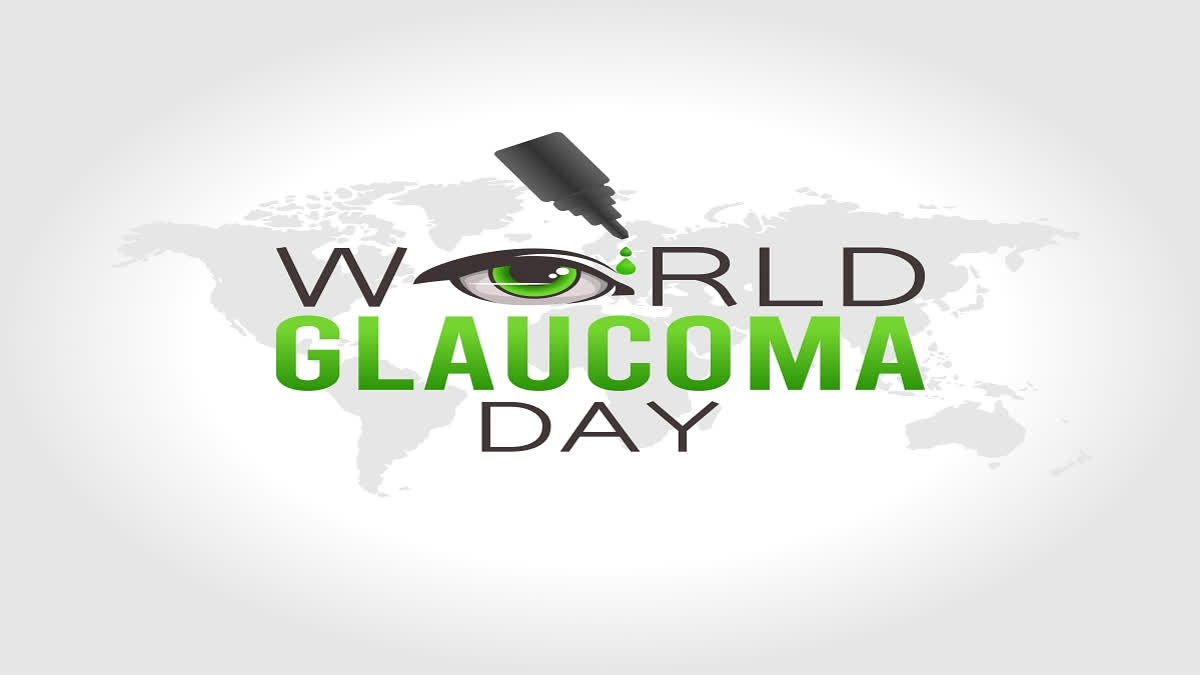Hyderabad: World Glaucoma Day is observed on March 12 every year. Glaucoma is the name for a group of eye conditions in which the optic nerve is damaged at the point where it leaves the eye. This nerve carries information from the light sensitive layer in one's eye, the retina, to the brain where it is perceived as a picture.
This can lead to blindness and vision loss. Getting a comprehensive dilated eye exam can help in detecting the presence of glaucoma. One of the most common symptoms of glaucoma is slow vision loss.
History: World Glaucoma Week was initiated to address the increasing prevalence of glaucoma worldwide. As the leading cause of irreversible blindness, it becomes essential to have a dedicated time each year to shed light on this condition. Since its inception, the event has grown tremendously, with many countries participating, advocating for good eye health and providing resources for those affected.
Theme: This year's theme 'Uniting for a Glaucoma-Free World' focuses on bringing communities worldwide to fight together against glaucoma blindness.
Significance: The main aim is to help eliminate blindness caused by this disease by raising awareness about it. The day helps to educate people about the serious risk of Glaucoma. It's a global initiative aimed at raising awareness about this leading cause of preventable blindness.
World Glaucoma Week: World Glaucoma Week is a global initiative dedicated to raising awareness about glaucoma, a group of eye diseases that lead to progressive vision loss due to damage to the optic nerve. Through this week, healthcare professionals, organisations and advocates form around the globe come together to emphasise the importance of regular eye exams and early diagnosis, which can greatly improve the prognosis for those affected. This year the week started from March 10 to 16.
What causes glaucoma? Scientists are not sure what causes the most common types of glaucoma, but many people with glaucoma have high eye pressure. Your eyes produce a fluid called aqueous humor that nourishes them. This liquid flows through your pupil to the front of your eye.
With glaucoma, the resistance increases in your drainage canals. The fluid has nowhere to go, so it builds up in your eye. This excess fluid puts pressure on your eye. Eventually, this elevated eye pressure can damage your optic nerve and lead to glaucoma.
What are the symptoms of glaucoma
- Eye pain or pressure
- Headaches
- Rainbow-colored halos around lights
- Low vision, blurred vision, narrowed vision (tunnel vision) or blind spots
- Nausea and vomiting
- Red eyes
- Whitening/haziness of the cornea
- Patchy blind spots inside or central vision
How to prevent glaucoma
- Catch this silent thief of sight before you lose vision
- Taking steroid medicine? Talk with your eye doctor
- Eat well to see well
- Exercise
- Protect your eyes from injury
- Avoid head-down positions
- Sleep in the right position: If you have glaucoma, avoid sleeping with your eye against the pillow or on your arm
- Keep your mouth clean
- Manage your blood pressure
- Protect your eyes from sunlight
- Limiting alcohol consumption
Know the Facts About Glaucoma:
- Glaucoma is a group of diseases that damage the eye’s optic nerve and can result in vision loss and even blindness
- Epidemiological studies on glaucoma involving adults aged 40 years and above have estimated glaucoma prevalence between 2.7 and 4.3 per cent among Indians
- Glaucoma is estimated to affect 27.8 million more people by 2040 in Asia, and India and China will share the maximum burden
- Glaucoma is responsible for blindness in 1.2 million people and accounts for 5.5 per cent of total blindness, putting it as leading causes of irreversible blindness in India
- Open-angle glaucoma, the most common form, results in increased eye pressure. There are often no early symptoms, which is why 50 per cent of people with glaucoma don’t know they have the disease
- There is no cure yet for glaucoma, but if it's caught early, you can preserve your vision and prevent vision loss. Taking action to preserve your vision health is key



